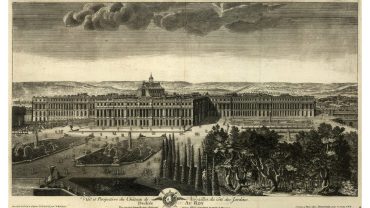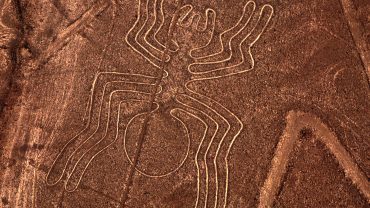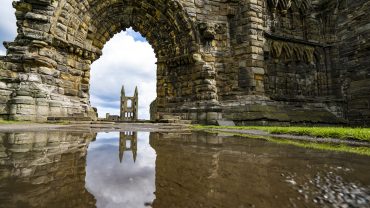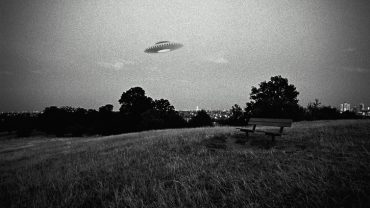Romeo & Juliet. The Merchant of Venice. Othello. A Midsummer Night’s Dream. Twelfth Night. Hamlet. Macbeth. King Lear. The Taming of the Shrew. The list goes on, and on, and on. William Shakespeare was a towering literary genius. Yet the Shakespeare authorship question challenges the traditional attribution of The Bard’s works, suggesting that someone other than the son of a glove maker from Stratford-upon-Avon wrote the plays, sonnets, and poems attributed to his famous name.
So was William Shakespeare the greatest literary hoax of all time? Was he a front to guard the identity of the man or woman who really wrote Shakespeare’s plays, a person who – for any number of reasons – couldn’t or wouldn’t reveal their identity and take credit for some of the greatest works in the history of the English language? Will the true identity of Shakespeare ever be agreed upon? And what do the ‘anti-Stratfordians’ know that we don’t?
Let’s take a trip back to the late sixteenth century in an attempt to shed light on one of the literary world’s most perplexing debates – who really wrote Shakespeare’s plays?
The Genesis of the Shakespeare Authorship Question

A statue of William Shakespeare (Credit: bgwalker via Getty Images)
The beginnings of this contentious debate are said to date back much earlier than commonly believed, with suggestions that doubts surfaced even before his death in 1616. Contrary to the widely held notion that scepticism began in the nineteenth century, it’s believed by some that questions – more like occasional comments – regarding the true authorship of Shakespeare’s plays may possibly have been raised soon after the publication of his early plays and sonnets.
However, the widely accepted scholarly consensus is that significant doubt over the Shakespeare authorship question did not publicly surface until the nineteenth century. The earliest notable expressions of scepticism began with the work of Delia Bacon (no relation to Francis Bacon, one of the proposed alternative authors) in the mid-1800s. Her book, ‘The Philosophy of the Plays of Shakespeare Unfolded,’ published in 1857, is often credited with initiating the formal debate.
Who Were the Anti-Stratfordians?

William Shakespeare's birthplace, Stratford-upon-Avon, Warwickshire (Credit: Maxian via Getty Images)
These doubts were fuelled by – amongst other things – alleged cryptic content in Shakespeare’s plays and sonnets, including strange dedications, ambiguous references, and supposed parallels with other literary works. They were seen as coded messages that, properly deciphered, would reveal the true identity of Shakespeare. These messages – if that’s really what they are – have spawned centuries of debate and speculation, giving rise to a group known as the anti-Stratfordians.
These sceptics challenge the traditional narrative that William Shakespeare was the singular genius behind this staggering body of work, proposing instead that the poems, play and sonnets attributed to him were actually written by someone else, whose identity has been lost to time or concealed by circumstance.
The anti-Stratfordians base their arguments on the question of the Shakespeare authorship on several perceived inconsistencies between Shakespeare’s personal background and the depth of knowledge demonstrated in his plays.
They point to his average education and a middle-class socioeconomic status, which seems at odds with the sophisticated understanding of law, philosophy, foreign languages, and aristocratic culture evident in his works. They question how Shakespeare, with his modest provincial upbringing, could have accessed the details of Elizabethan and Jacobean court life and the complex nuance of international affairs that permeate his plays.
Some of the most prominent anti-Stratfordians included American essayist Walt Whitman, authors Mark Twain, Helen Keller, and Henry James, and psychoanalyst Sigmud Freud.
Indeed Mark Twain, author of The Adventures of Tom Sawyer and The Adventures of Huckleberry Finn, the latter widely regarded as one of the greatest novels of the twentieth century, was particularly scathing when discussing the authorship of Shakespeare’s plays.
‘So far as anybody actually knows and can prove, Shakespeare of Stratford-upon Avon never wrote a play in his life. All the rest of his vast history, as furnished by the biographers, is built up, course upon course, of guesses, inferences, theories, conjectures – an Eiffel Tower of artificialities rising high.’
They also point to the fact that not a single letter written by, or to, William Shakespeare exists. There are, it’s believed, no books, journals, papers or literary memorabilia said to have been owned by him, nor any record of payment or patronage for anything he wrote.
In the interests of balance, it wasn’t unusual for Elizabethan and Jacobean writers not to have kept such documents, and much inevitably gets lost over the centuries. Indeed the absence of such documents does not necessarily indicate that Shakespeare was not the author.
Was Shakespeare Even a Writer?

Romet and Juliet by William Shakespeare (Credit: n_prause via Getty Images)
It’s also been stated that during his lifetime, William Shakespeare – whose actual existence has never been disputed or questioned – never claimed to be a writer of any sort, and when he died in 1616, he left no trace whatsoever of a literary career. The historical record also points to Shakeapeare’s family and friends, many of whom left significant writings, who somehow failed to mention that the man they knew even owned a quill, let alone was the greatest writer of his age, or indeed any age.
His will mentioned household items (including leaving his wife his ‘second-best bed’), but there was no mention of anything – writing desk, book collection, manuscripts etc – that pointed to any literary, creative, or artistic interest whatsoever.
This remarkable lack of evidence explicitly identifying William Shakespeare as a writer inevitably raises the single most controversial question in the storied history of literature – if not him, then who really wrote Shakespeare’s plays?
The Leading Contenders

18th century bust of Sir Francis Bacon by Rysbrack (Credit: yerfdog via Getty Images)
The Shakespeare authorship question has thrown up several prevailing theories proposing various historical figures who may have assumed the true identity of Shakespeare. Each is supported by a set of arguments highlighting consistencies between the candidate’s life, abilities, and the content of the plays and sonnets. Here are the leading contenders:
Edward de Vere, the 17th Earl of Oxford
Supporters of this theory, known as Oxfordians, argue that his education, background in the royal court, and known literary talents make him a fitting author of the Shakespearean body of work. De Vere was a patron of the arts and had a detailed knowledge of court life, Italy, and the law, all of which are prominently featured in Shakespeare’s works. He was also highly regarded in contemporary literary circles as a fine playwright and poet. Was de Vere responsible for the authorship of Shakespeare’s plays?
It’s been suggested that de Vere wrote under a pseudonym to avoid the social stigma associated with a nobleman writing plays for the general public. They also point to perceived parallels between events in de Vere’s life and themes in the plays.
Sir Francis Bacon
Advocates for Bacon, called Baconians, propose that he had the requisite intellectual capabilities and circumstances. Bacon was a high profile Elizabethan philosopher, scientist, jurist, and statesman, known for his promotion of the scientific method, which might correspond to the logical structuring and thematic intricacies found in the plays.
A school of thought is that Bacon used these works as a vehicle for disseminating his philosophical ideas under a pseudonym to avoid political repercussions, or worse, but there’s scant evidence to suggest this was the case. Did Francis Bacon assume the true identity of Shakespeare? It’s certainly not clear that he did.
Christopher Marlowe
Marlovians believe that Christopher, or Kit, Marlowe, a contemporary playwright known for his blank verse and dramatic themes, did not actually die in 1593 – rumours abounded that his reported death was faked to escape legal and clerical persecution – but lived on and continued to write under the name of Shakespeare. Marlowe’s works share stylistic similarities with Shakespeare’s, including themes, vocabulary, and poetic metre. Was the Shakespeare authorship undertaken by Christopher Marlowe?
Two more of the leading contenders include William Stanley, the 6th Earl of Derby, and Roger Manners, the 5th Earl of Rutland. Both had well-documented literary interests and capability, both were well-travelled, and both had a high level of cultural and political insight.
More recently, the question of who really wrote Shakespeare’s plays has been widened to include –
- Mary Herbert, Countess of Pembroke, a highly regarded sixteenth and seventeenth century poet and translator.
- English courtier and poet Sir Edward Dyer who was present at Elizabeth I’s court.
- William Nugent, a sixteenth century Irish rebel.
- Sir Henry Neville, a sixteenth century courtier, diplomat, and politician who attempted negotiations between King James I and the Houses of Parliament.
- Thomas Cecil, the 1st Earl of Exeter, a sixteenth century soldier, politician and courtier.
Each of these theories looks to align biographical anecdotes or specific competencies of these men and women with the attributes and knowledge required to write the plays and sonnets attributed to Shakespeare.
The debates – almost entirely circumstantial and speculative – are fuelled by analyses of historical documents, stylistic examinations of the texts, and interpretations of literary allusions within the works. These theories continue to be subjects of scholarly discussion and are supported by various societies and groups dedicated to studying the Shakespeare authorship question.
Will I Am, Will I’m Not? The Ongoing Search for Shakespeare

William Shakespeare (Credit: clu via Getty Images)
The debate over the true identity of Shakespeare remains one of the most intriguing and enduring mysteries in literary history. While William Shakespeare has been traditionally celebrated as the writer of these timeless plays and sonnets, a chorus of dissenting voices, armed with compelling arguments and alternative candidates, challenges this orthodoxy.
From aristocrats like Edward de Vere to literary contemporaries like Christopher Marlowe, scholars and enthusiasts continue to delve deeper into the life and times of Elizabethan England in an attempt to uncover who really wrote Shakespeare’s plays.
The Shakespeare authorship question continues to captivate, inspire, and provoke rigorous debate, ensuring the dialogue surrounding the bard’s legacy remains as dynamic as the works themselves.
Exit, pursued by a bear.












